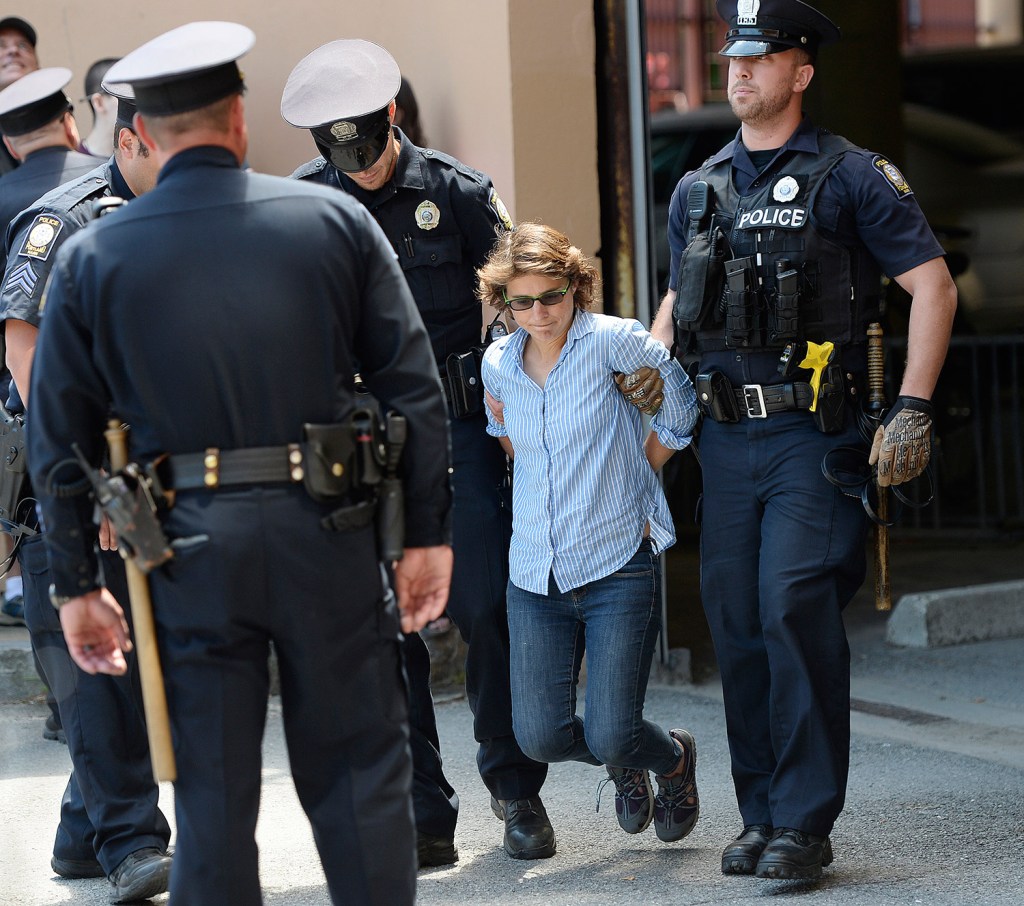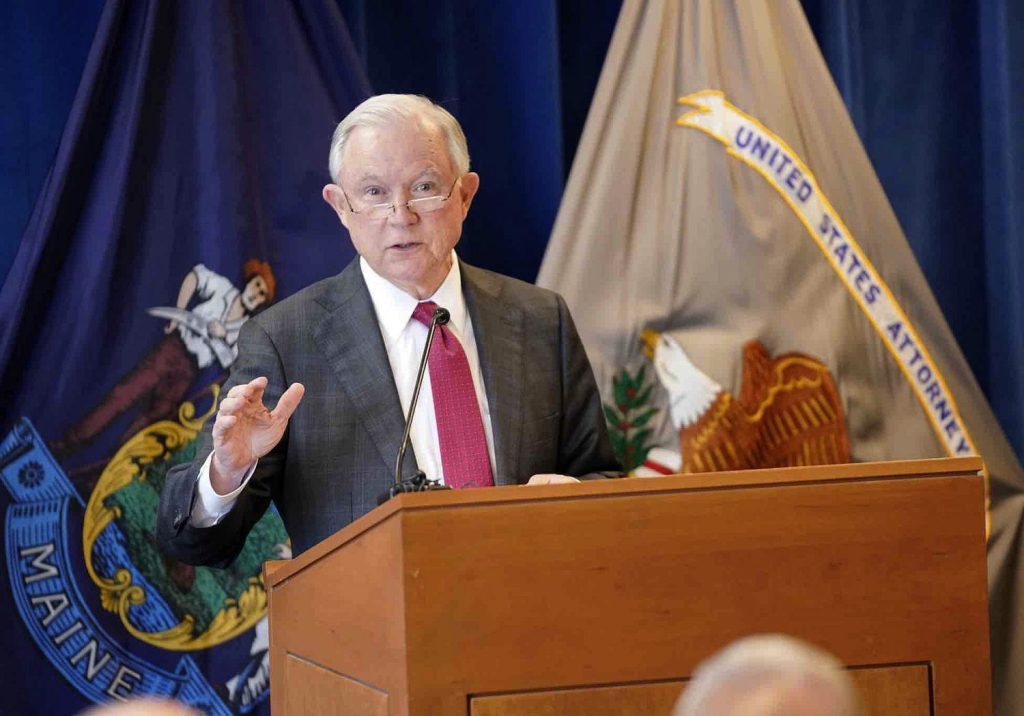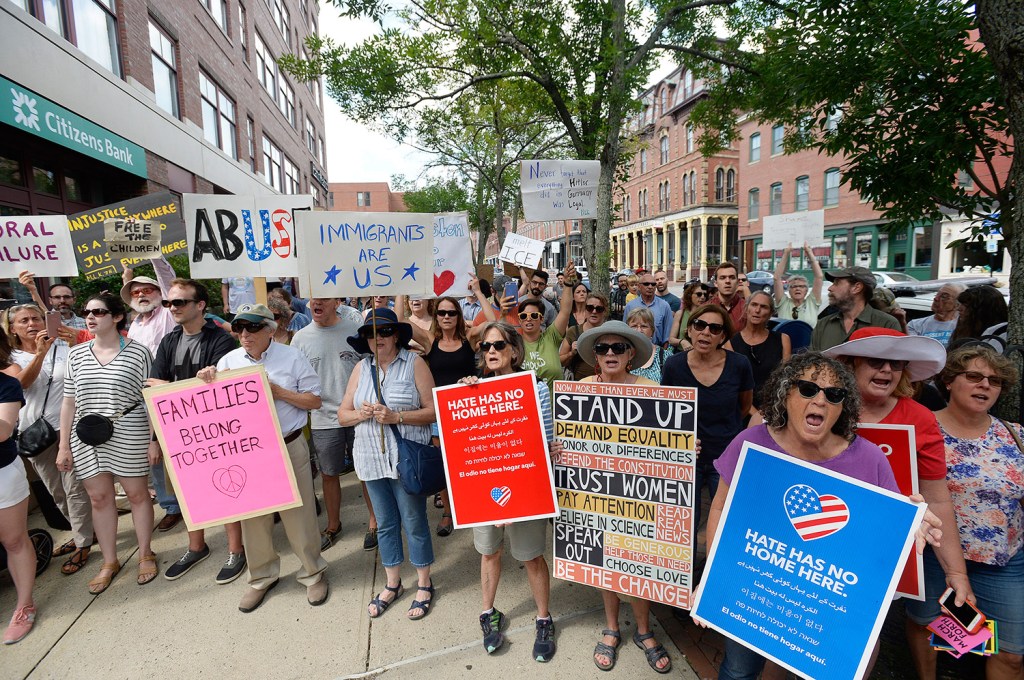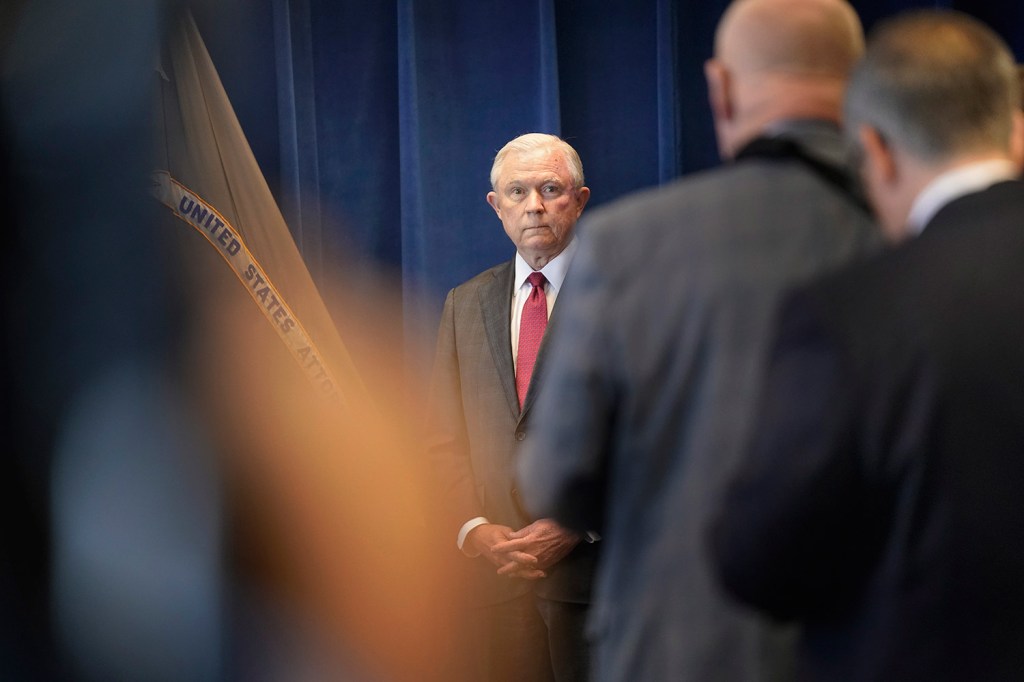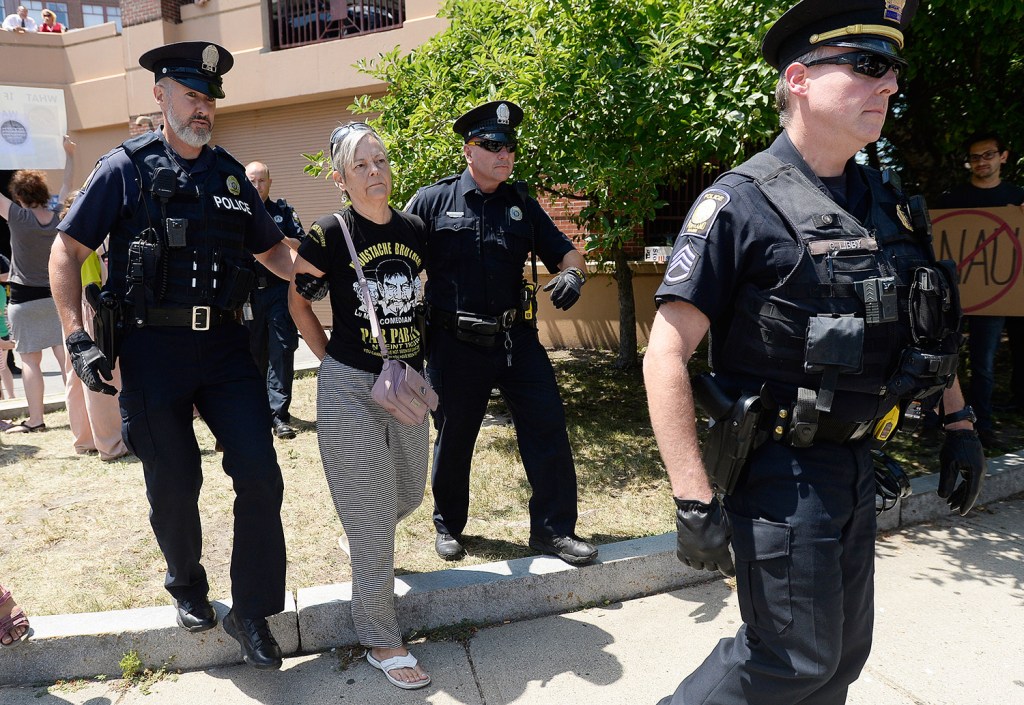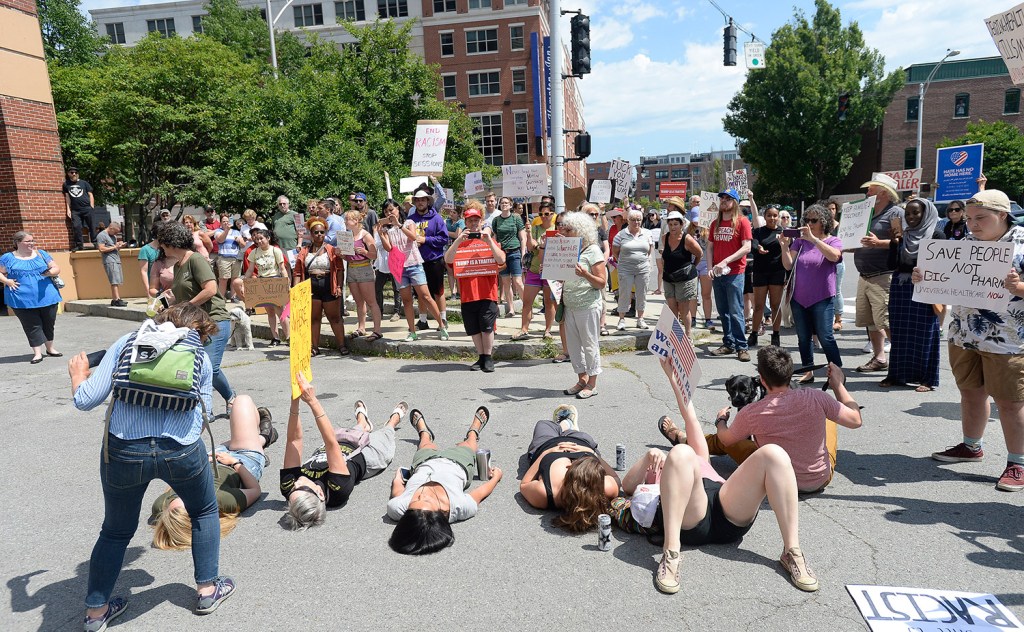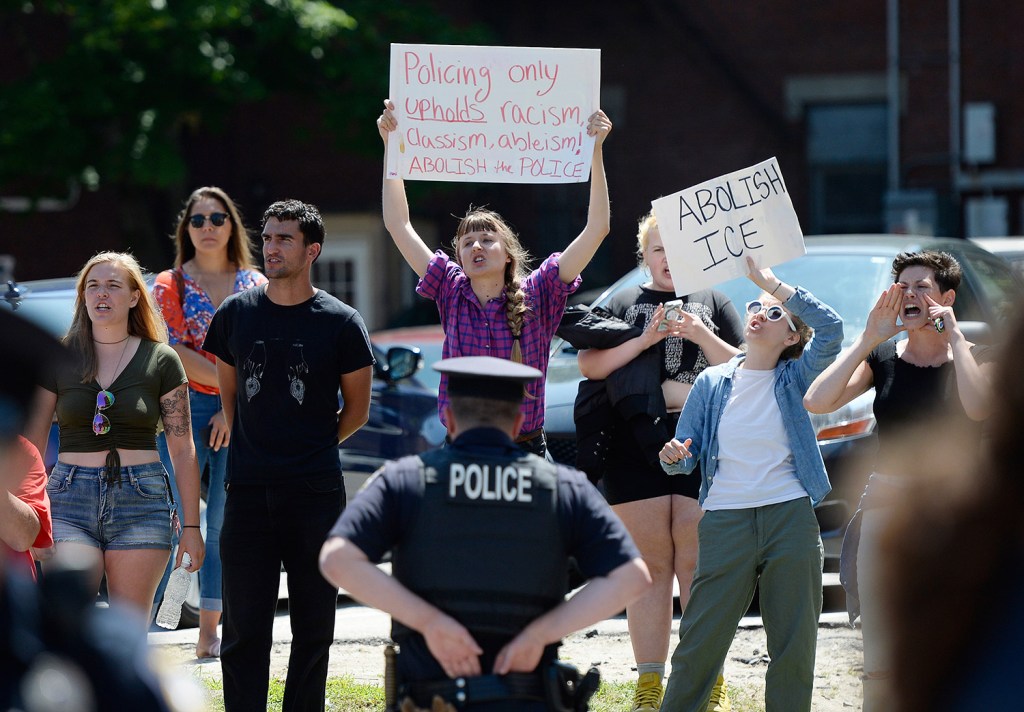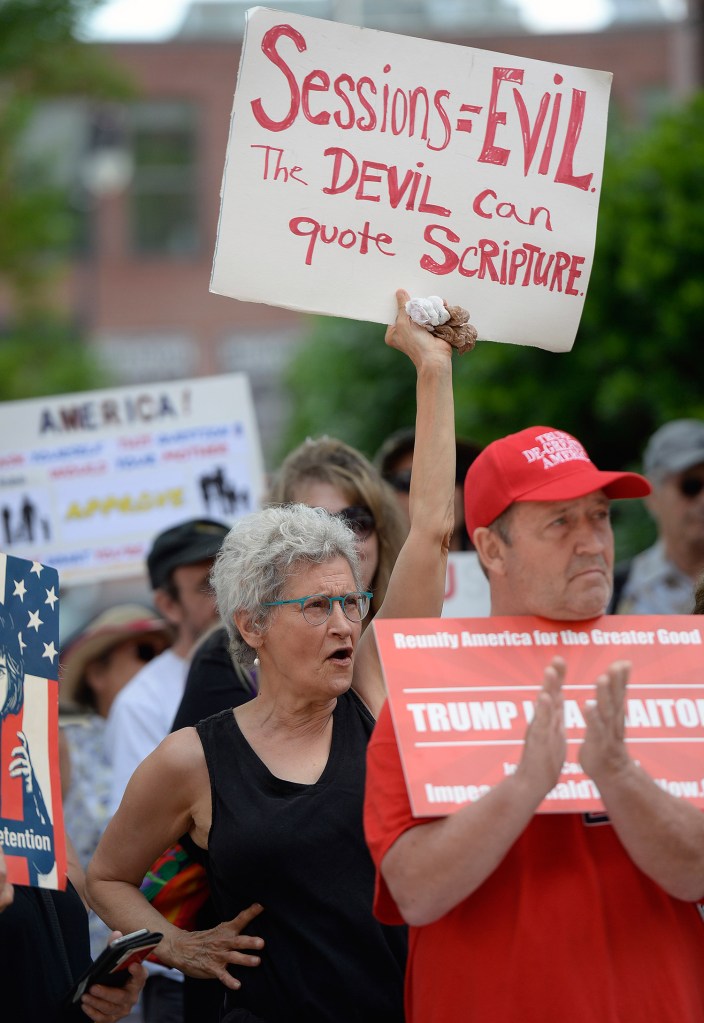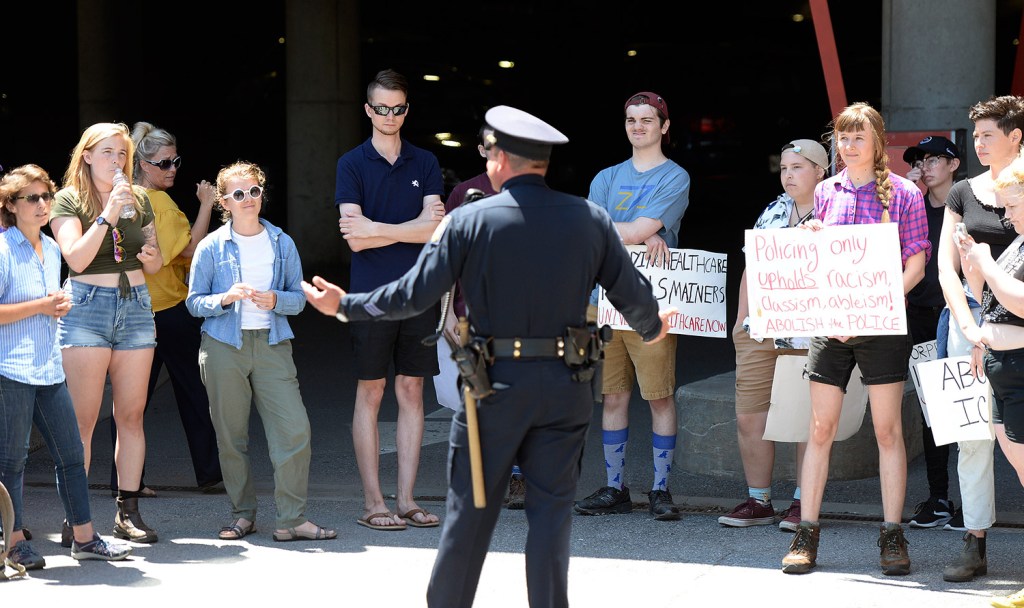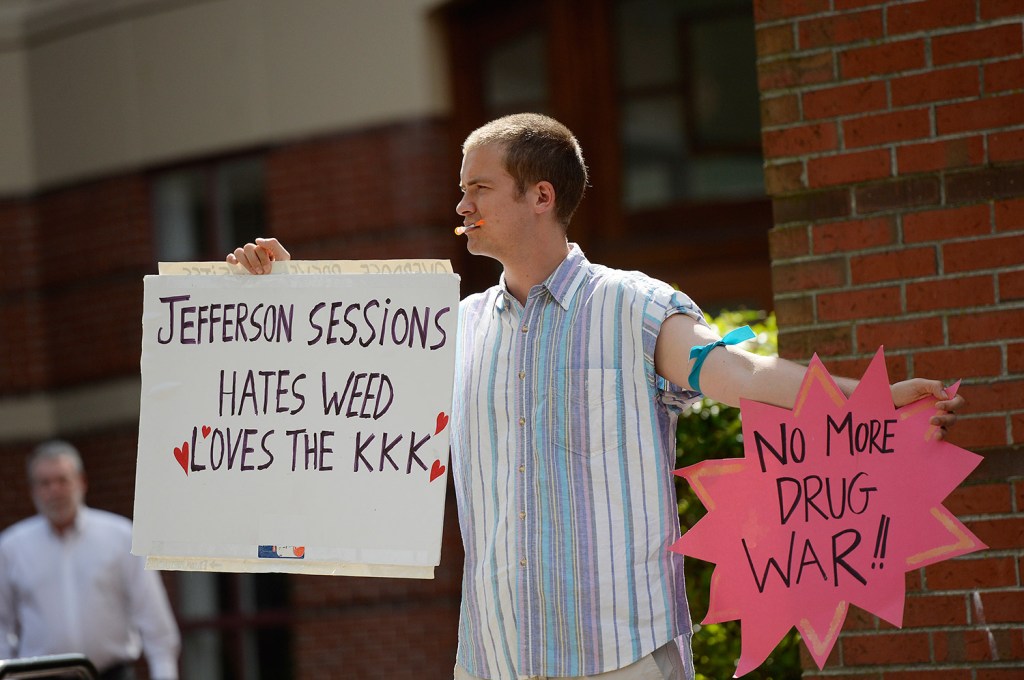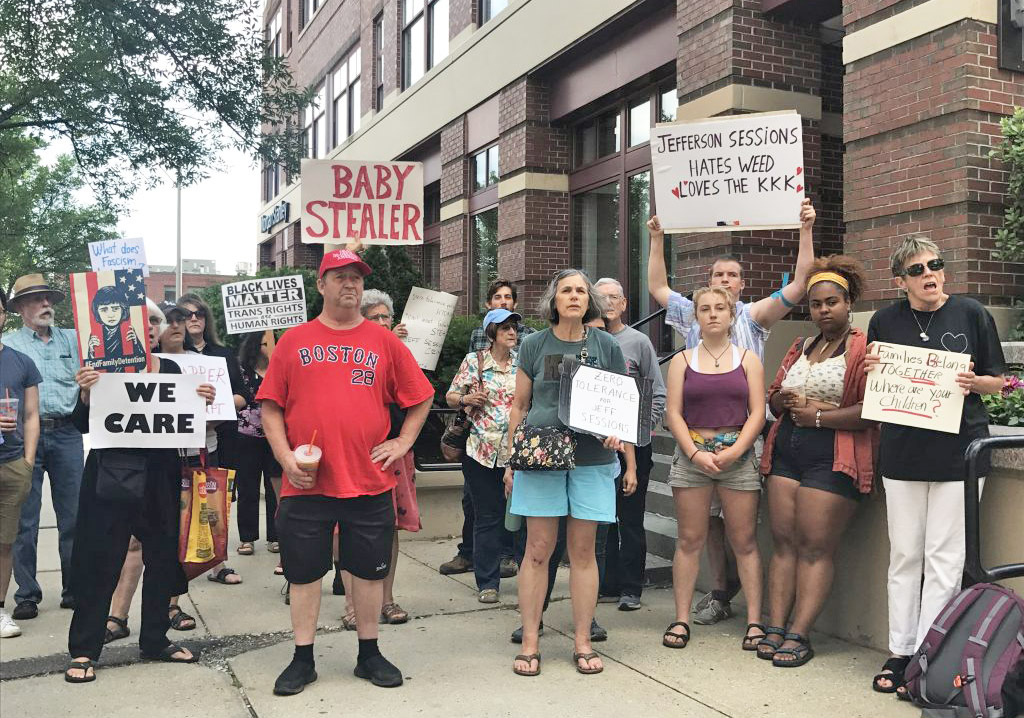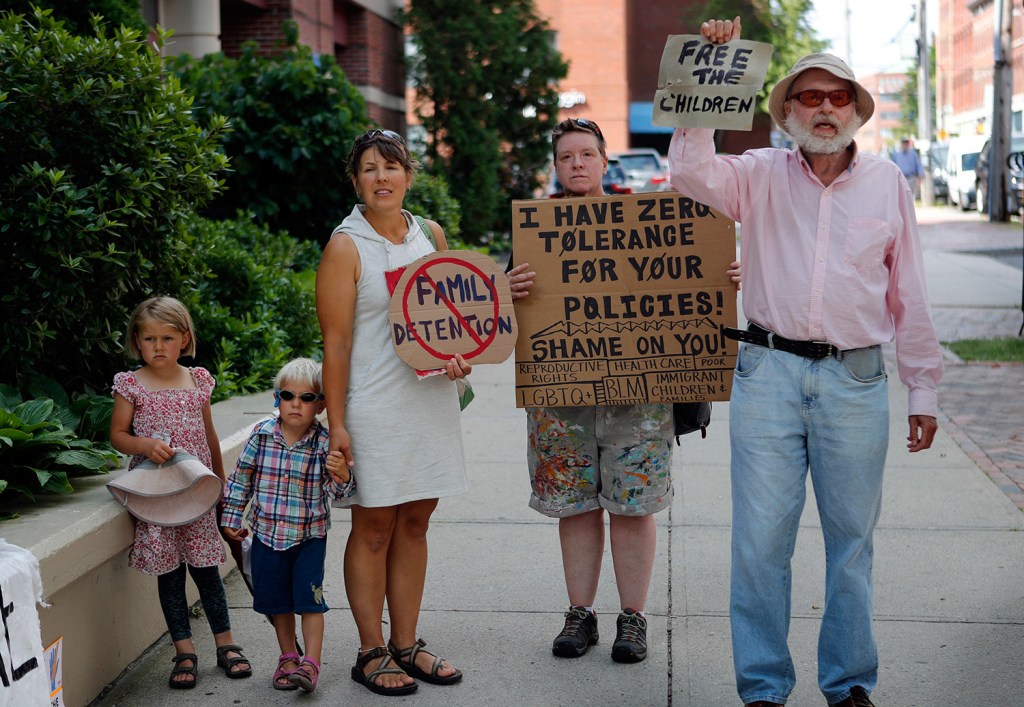Law enforcement has an indispensable role to play in helping the nation respond to the opioid drug crisis, U.S. Attorney General Jeff Sessions said Friday after meeting in Portland with local law enforcement officials.
“Enforcement of drug laws is never more important than now,” Sessions said during a news conference at the U.S. Attorney’s Office. Outside the building on Middle Street, meanwhile, 150 people held signs, chanted and sang songs to protest Trump administration policies, particularly on immigration.
Sessions came to Portland to promote Operation Synthetic Opioid Surge, a crackdown announced Thursday on the misuse of opioids, which have fueled a crisis in Maine and across the nation.
“That’s a good Washington acronym, S.O.S.,” Sessions said, speaking to a crowd of attorneys, law enforcement officials and media.
However, two local law enforcement officials raised concerns about devoting resources to a program that targets lower-level dealers, many of whom are selling small amounts of drugs to support their own addictions.
A statement about the initiative said that Maine would get an additional prosecutor in the office of U.S. Attorney Halsey B. Frank to help on opioid cases, but other details were not released Friday, and Sessions did not take questions from the media.
“We will be relentless,” Sessions said. “We will sustain this effort.”
Operation SOS is being described as an “enforcement surge” in 10 U.S. Attorney’s Office districts, including Maine, where the focus will be on Cumberland County. Other districts involved in the initiative will include northern and southern Ohio, eastern Tennessee, eastern Kentucky, northern and southern West Virginia, eastern California, western Pennsylvania and New Hampshire.
The program is modeled on what Sessions said is a successful enforcement effort in Manatee County, Florida. The Justice Department wants to replicate that success in the districts that need it most, he said.
“This new strategy – and the new prosecutors who will help carry it out – will help us put more traffickers behind bars and keep the American people safe from the threat of these deadly drugs,” Sessions said in a statement Thursday.
The surge will “prosecute every readily provable case involving the distribution of fentanyl, fentanyl analogues and other synthetic opioids, regardless of drug quantity,” the statement said.
In Manatee County, law enforcement officials have credited a surge in law enforcement, called “Operation Hot Batch,” with a decline in overdose deaths, according to news reports. Overdose deaths declined by 74 percent in 2017, compared to 2016, and the Manatee County Sheriff’s Office went from responding to 11 overdoses per day to fewer than one overdose per day, the Justice Department said in a statement.
Aside from the additional prosecutor, the statement did not specify whether any more resources for state or local law enforcement would be available, and Sessions did not speak to that in his remarks. Going after lower-level drug dealers without sacrificing other priorities of law enforcement would likely require more money and people.
Portland Police Chief Michael Sauschuck, who is retiring next week to become an assistant city manager, did not respond to a phone call for comment on Sessions. He did not attend the meeting.
Sanford Police Chief Thomas Connolly Jr., who was not present at the event, said many of the “low-level dealers” have substance use disorder and are merely selling a few pills on the side to support their habit. Instead of arresting them, they should be put into treatment programs, reducing the demand for the drugs, he said.
“I don’t think prosecuting them is going to do much good. Without treatment, you would just have an addict in jail. And when they get out of jail, without treatment, they’re still an addict,” Connolly said. “You can’t arrest your way out of this situation.”
Cumberland County Sheriff Kevin Joyce, speaking to reporters after Sessions’ remarks, said he expected more details about whether there would be additional police resources.
But Joyce said officials shouldn’t lose sight of putting more resources into addiction treatment and prevention.
“This is an illness,” Joyce said. “Hopefully, the next time we meet somebody from Washington we will talk about rehabilitation and how to fund that.”
Joyce said if there’s no or little demand for opioids, that will reduce drug trafficking because dealers won’t have as many customers.
Maine experienced a record 418 drug overdose deaths in 2017, an all-time record, and averaged more than one death per day, according to state statistics. Drug overdose deaths have now surpassed motor vehicle accidents as a cause of death nationwide.
While Sessions spoke inside the building Friday morning, the protesters outside heard from a range of speakers.
Some addressed police mistreatment of minorities, the nomination of Brett Kavanaugh to the U.S. Supreme Court and Sessions’ opposition to the legalization of marijuana. One large sign read simply “Why do you hate all of us?” and listed in smaller print: “People of color … immigrants … people with substance use disorder … women…”
But one of the primary targets of the protest was the Trump administration’s zero tolerance policy for illegal immigrants at the southern U.S. border, which has led to thousands of children being taken from their parents and detained. The administration is now under court order to reunite the families, but has said it cannot meet the court’s initial deadlines.
“Jeff Sessions has said and his policies have done things I really disagree with, specifically family detention,” said Lisa Ravis, 38, of Naples, who brought her two young children.
Two women who were sitting in front of the parking garage entrance refused police orders to move. They were arrested peacefully and placed on a large prisoner transport vehicle from the Cumberland County Sheriff’s Office that was waiting at the nearby intersection. A spokesman for the Portland Police Department said the women – 39-year-old Jessica Stewart of Southwest Harbor and 70-year-old Lucia McBee of New York City – were charged with criminal trespass.
Joe Lawlor can be contacted at 791-6376 or at:
jlawlor@pressherald.com
Twitter: joelawlorph
Correction: This story was updated at 11:50 a.m. Monday July 16, 2018 to reflect the fact that Portland Police Chief Michael Sauschuck did not attend the meeting.
Send questions/comments to the editors.


